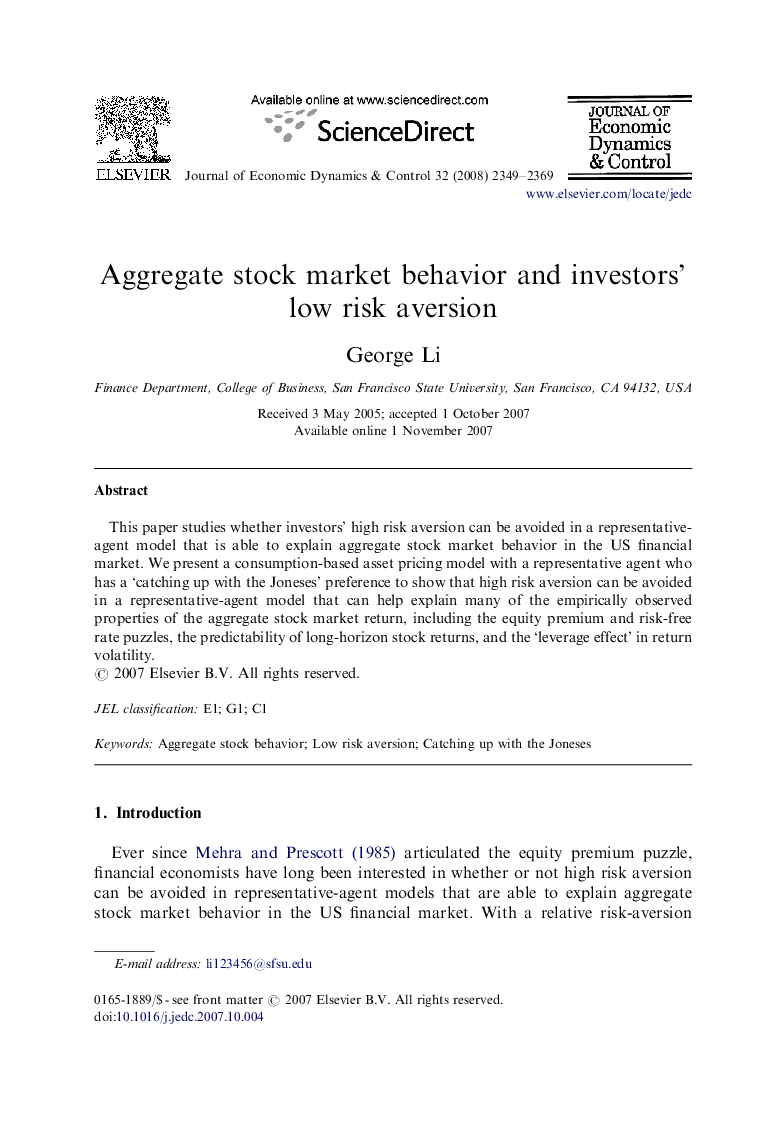| Article ID | Journal | Published Year | Pages | File Type |
|---|---|---|---|---|
| 5099406 | Journal of Economic Dynamics and Control | 2008 | 21 Pages |
Abstract
This paper studies whether investors' high risk aversion can be avoided in a representative-agent model that is able to explain aggregate stock market behavior in the US financial market. We present a consumption-based asset pricing model with a representative agent who has a 'catching up with the Joneses' preference to show that high risk aversion can be avoided in a representative-agent model that can help explain many of the empirically observed properties of the aggregate stock market return, including the equity premium and risk-free rate puzzles, the predictability of long-horizon stock returns, and the 'leverage effect' in return volatility.
Related Topics
Physical Sciences and Engineering
Mathematics
Control and Optimization
Authors
George Li,
